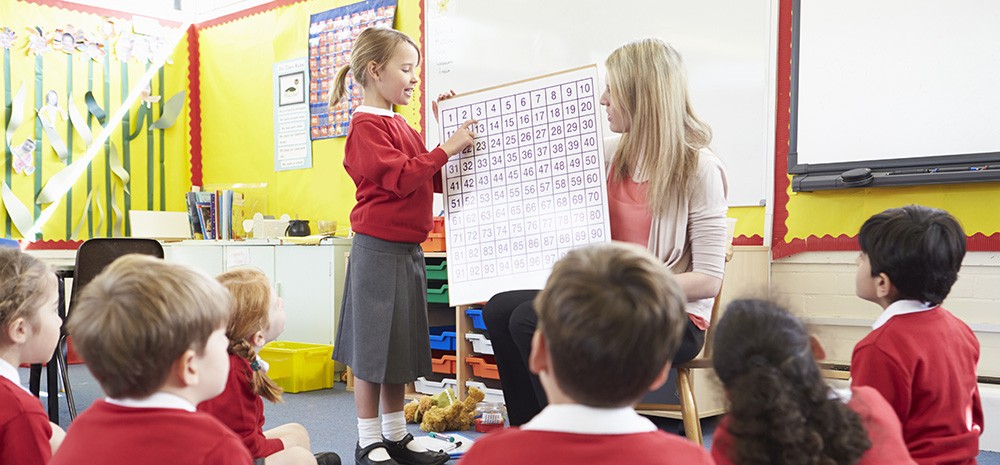
National Numeracy Day 2023
What is National Numeracy Day?
National Numeracy Day 2023 will take place on May 17 and looks to build brighter futures through improving people’s confidence with numbers and their relationships with maths. While thinking about maths may come with many negative associations for some people, often because of experiences at school, being number literate is an important life skill.
Furthermore, it’s important that adults who have a negative relationship with maths don’t pass on the same thoughts to children and young people who might be dissuaded from enjoying the subject. In later life, this could manifest through career choices and poor money management.
The first National Numeracy Day took place in 2018 as a collaboration between National Numeracy and KPMG, and it is estimated that since then, over 650,000 people in the UK have taken steps to improve their numeracy as a result.
How can I get involved in National Numeracy Day?
There are multiple ways that individuals, organisations and schools can get involved with National Numeracy Day 2023. The official website contains free downloadable resources for adults and children, designed to inspire and educate in equal measure. The content included in these range from advice and guides for adults looking to get to grips with their finances, to games and fun celebrity activities for kids.
In addition to these resources, the official website also hosts ‘The National Numeracy Challenge’, which provides guidance based on your answers to a few initial questions. Meanwhile, children might like to get involved with the ’Number Heroes’ competition. With prizes available for the individual winner, as well as their nursery, school or youth group, entrants are tasked with drawing a picture which presents their dream job and how being able to work confidently with numbers would inform their day-to-day work.
Of course, it’s also possible to celebrate National Numeracy Day 2023 in your own way! While younger children may enjoy activities such as going outside and counting objects such as cars of a certain colour, older children and young adults may enjoy trying some games which require number skills, such as darts.
How can adults overcome maths anxiety?
Many adults experience anxiety around maths and numbers. Whether this anxiety stems from a lack of knowledge or a fear of failure, it can drastically impact not only their own lives but also the lives of their children who may pick up on negative feelings.
Luckily, despite how some adults might have felt during their schooling, learning isn’t a competitive sport, and it’s never too late to improve our knowledge. Moreover, there isn’t a set pace we need to learn at, and everybody learns differently and in their own time.
Remembering these things, whilst accessing high quality educational resources, such as those offered on the National Numeracy Day 2023 website, is a brilliant way to get started on a journey towards achieving confidence when it comes to maths.
How can children overcome maths anxiety?
A study by the University of Cambridge in 2019 reported that children as young as 6 are suffering a range of negative responses to the subject – from fear to despair and rage - which can severely impact their ability to succeed as they progress to secondary school and beyond.
Our webinar, titled ‘Maths Anxiety: Building Resilience and Confidence to Improve Learner Outcomes’ will provide school leaders, mathematics leads and teaching staff at primary level with the knowledge and skills to help pupils overcome maths anxiety and achieve better outcomes in numeracy from the earliest stage. Furthermore, the webinar provides insight into some of the common traits of maths anxiety, and provides guidance on how educators can find further reliable information on the topic.
How can maths be adapted for pupils with SEND?
The SEND code of practice 2015 highlights the importance of including pupils with SEND ‘in all the opportunities available to other children and young people so they can achieve well’. Full access to the maths curriculum has the potential to enhance not only pupil attainment, but also teamworking skills, social interaction, self-esteem and wellbeing.
In response to this, our webinar titled ‘Primary Maths: Adapting Provision for Pupils with SEND’, will provide you with advice and practical guidance on supporting the participation of all pupils in maths lessons in mainstream schools, including those with physical, intellectual or developmental disabilities, such as autism.
The webinar, presented by Tony Cotton, the lead author for Oxford International Primary Mathematics, will also highlight the legal and statutory responsibilities of schools to provide access for all pupils to a high-quality curriculum.